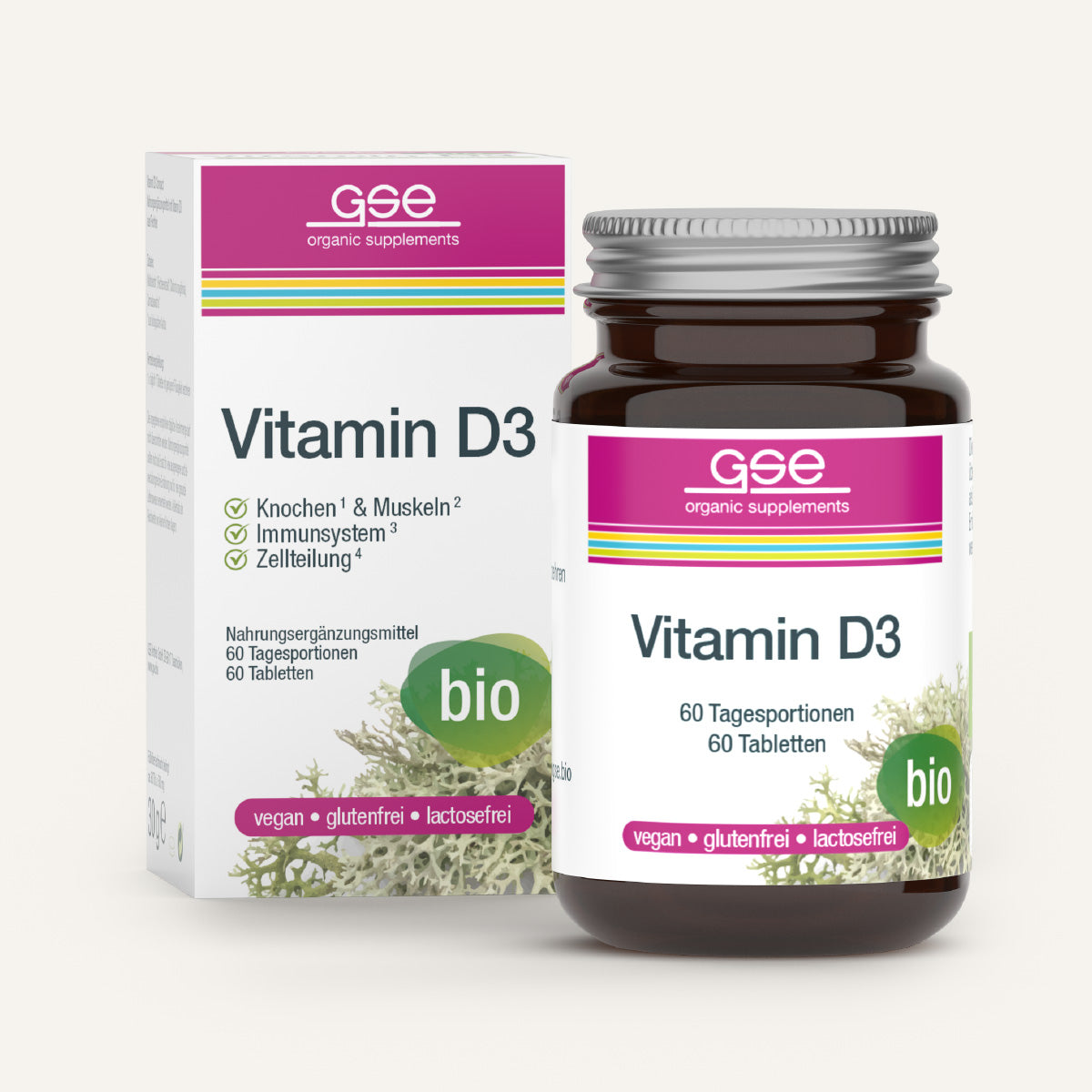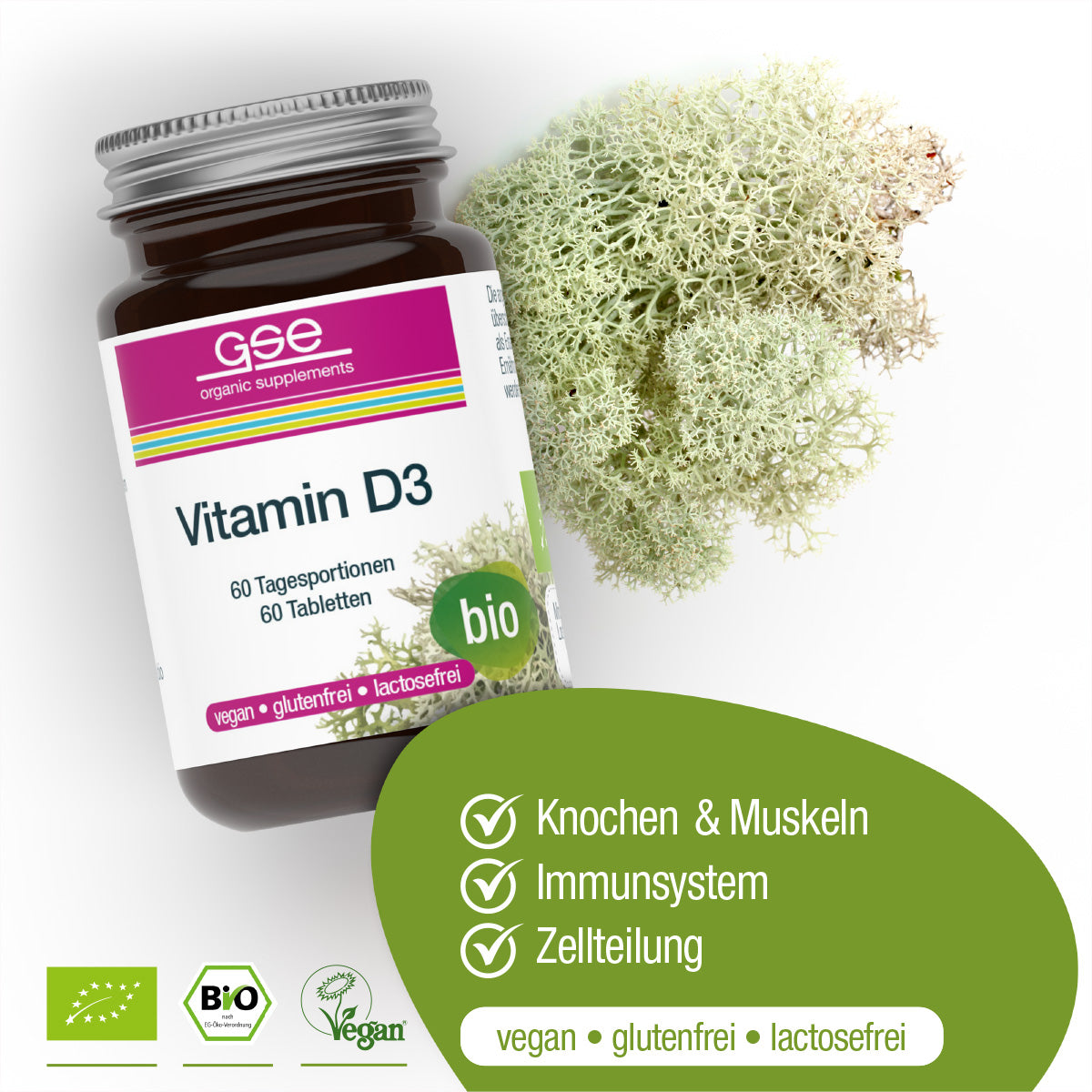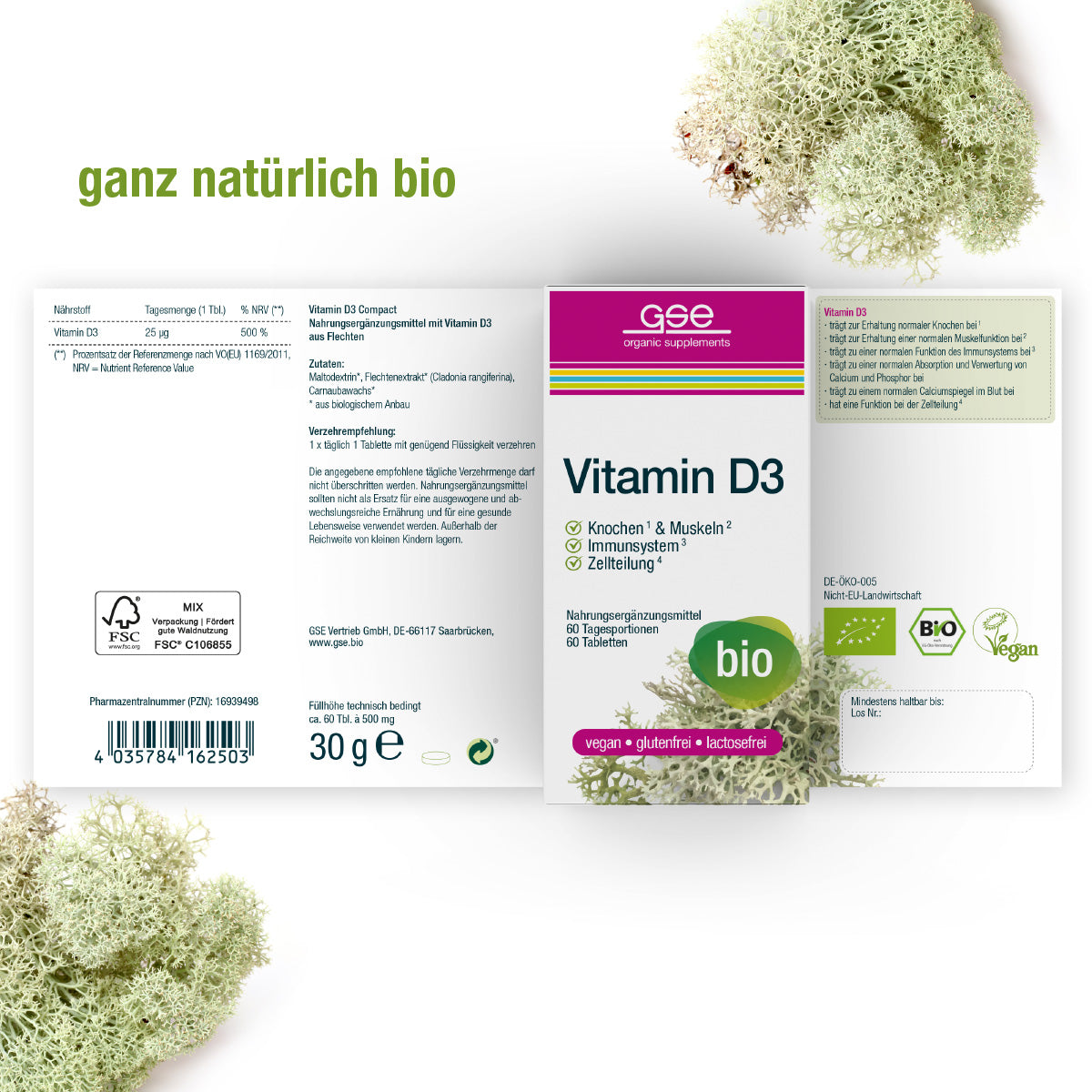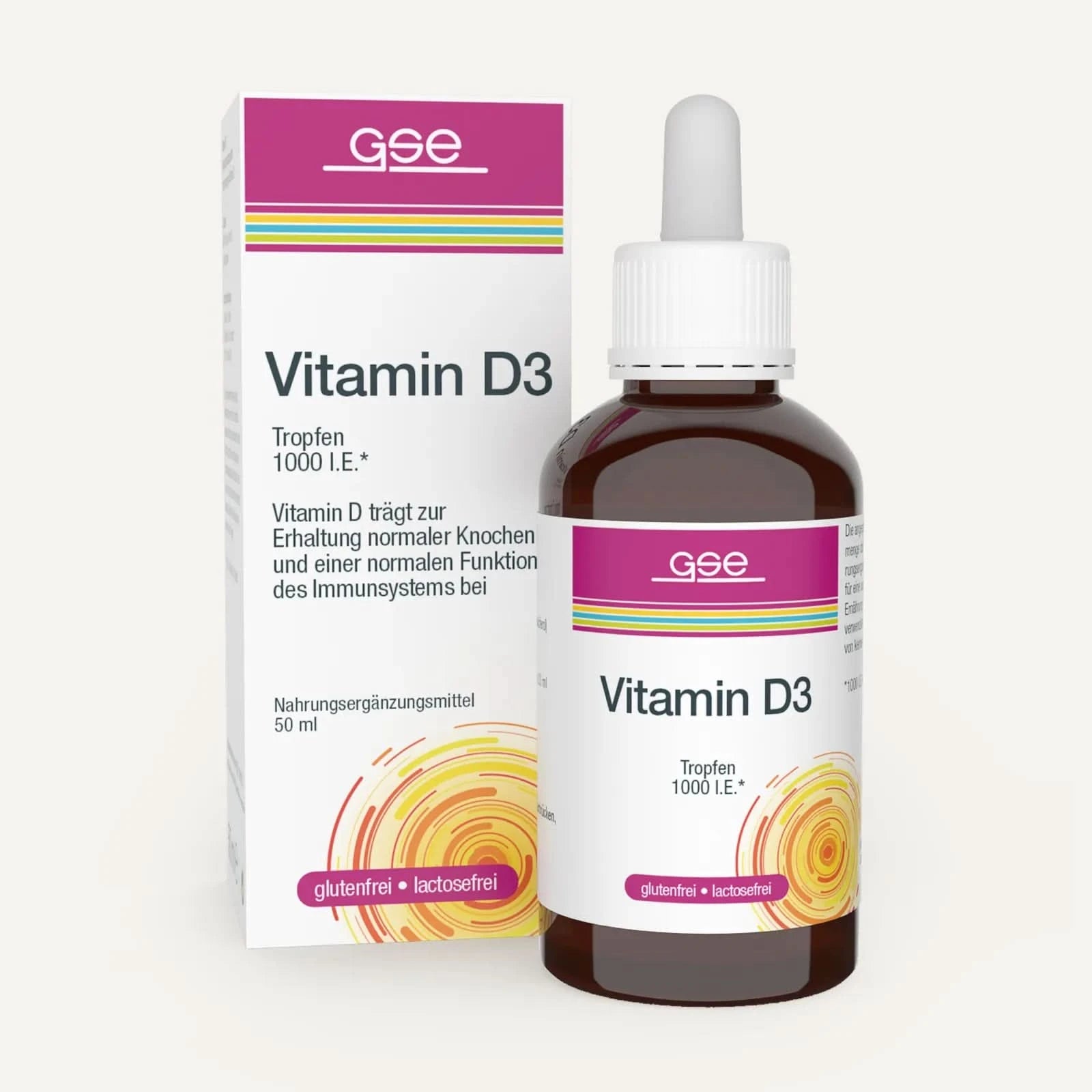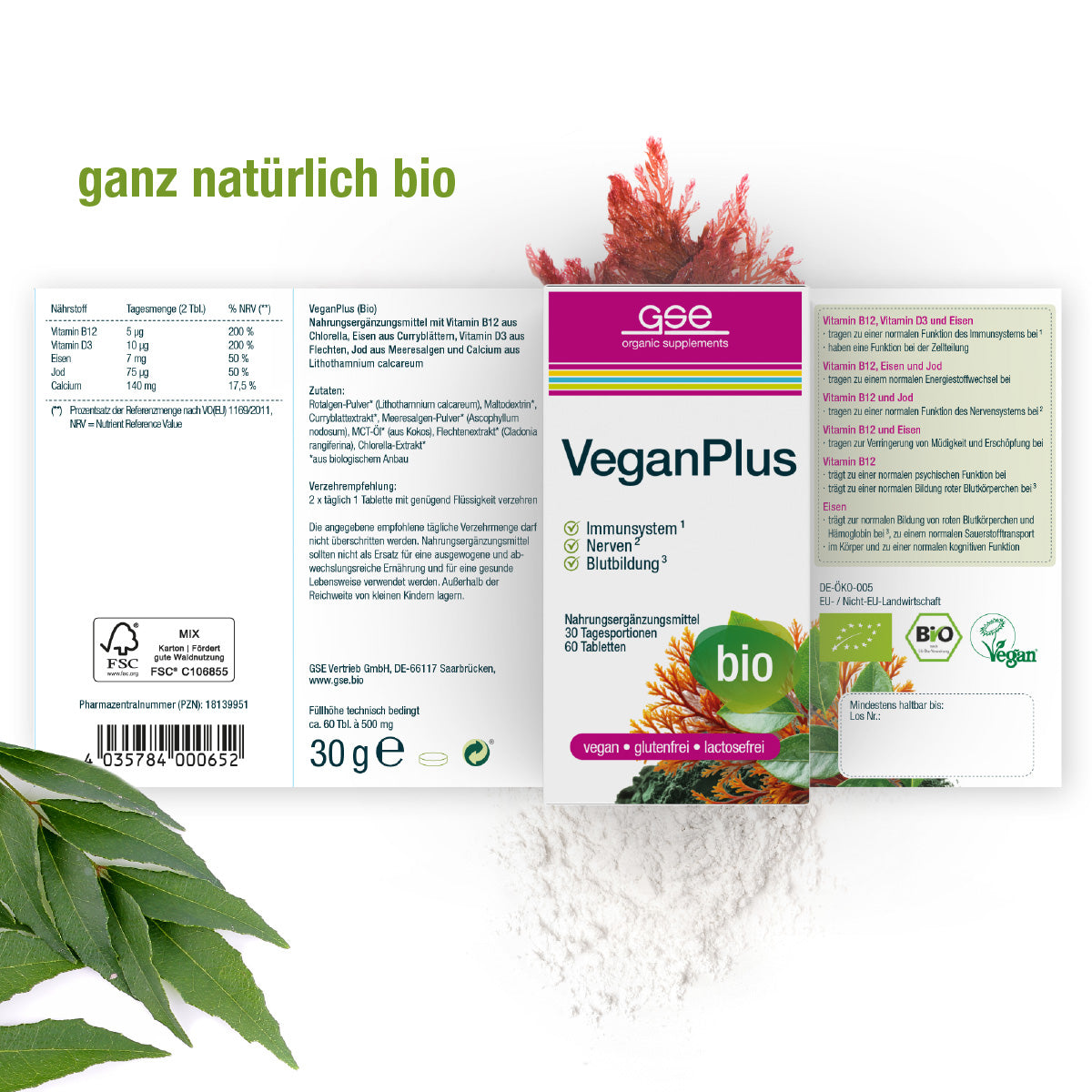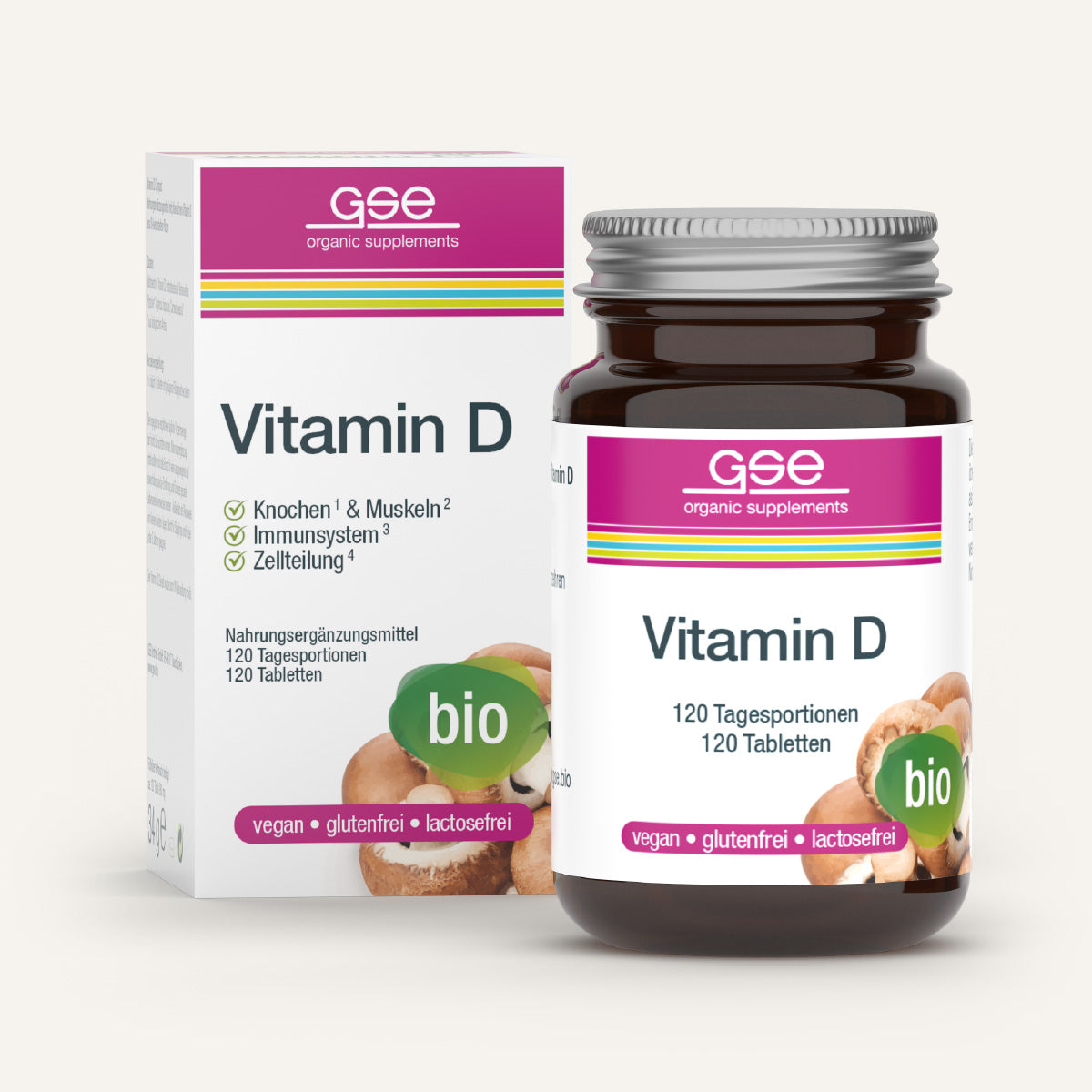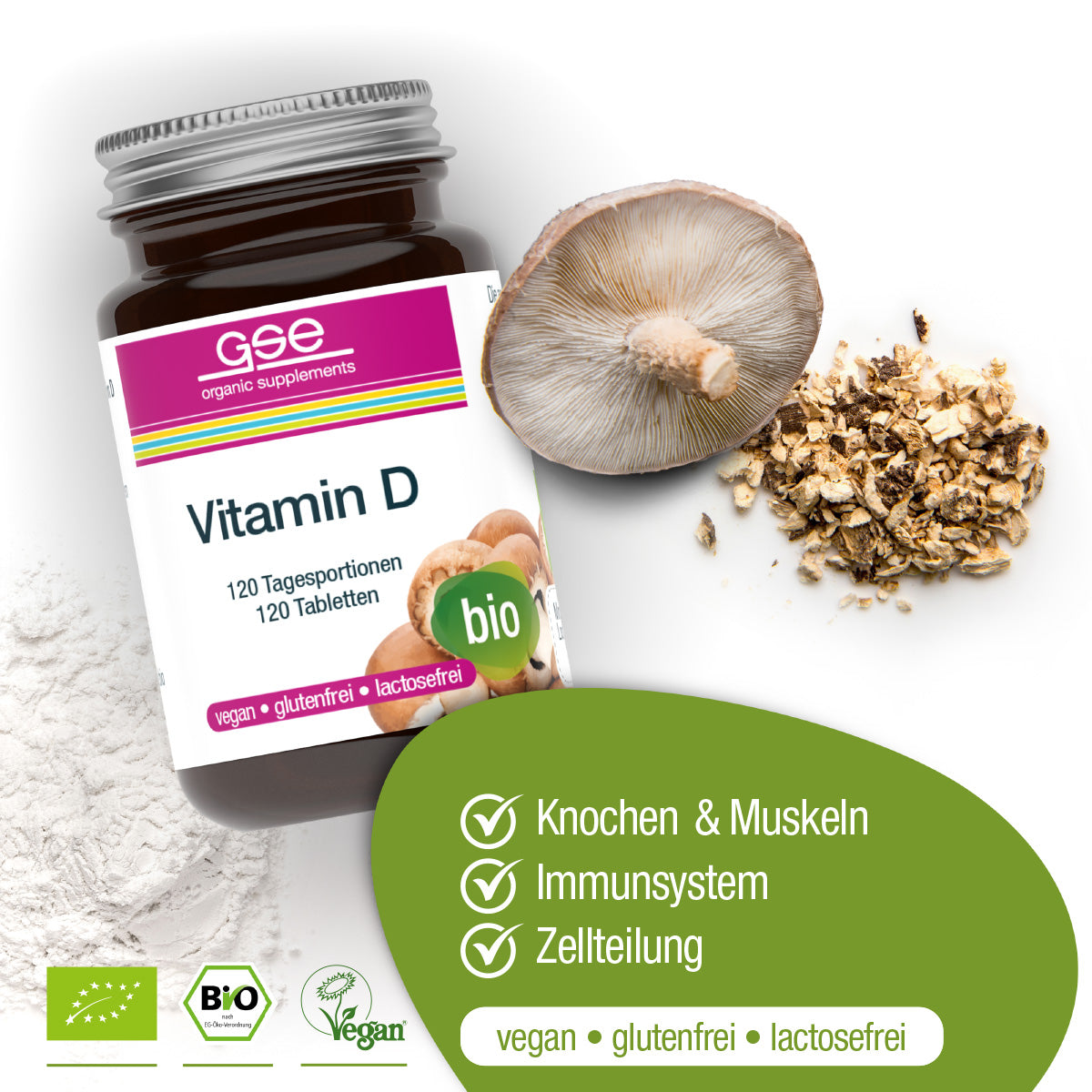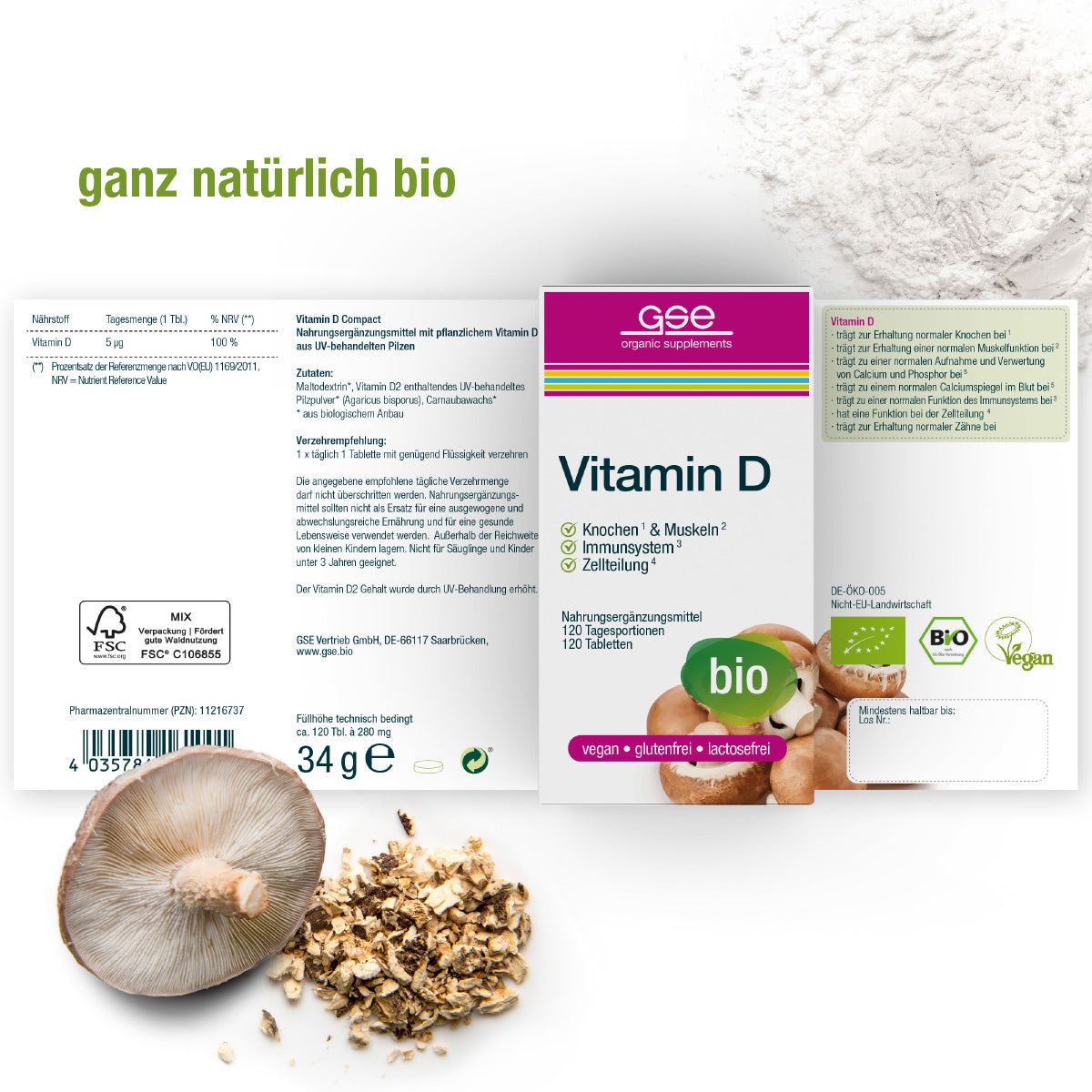Heute 10% Rabatt auf das gesamte Sortiment sichern*. Code: BLACKWEEK10
*ausgenommen bereits reduzierte Produkte
Vitamin D
The sunshine vitamin
Vitamin D occupies a special position among the vitamins, as it is both supplied in the diet and produced by humans themselves through exposure to sunlight. Vitamin D belongs to the group of fat-soluble vitamins and is significantly involved in various functions of the body.
The body covers 80 % of its vitamin D requirements itself - with the help of the sun. With sufficient exposure to UV light, the skin produces enough vitamin D to meet the body's requirements. How much vitamin D the body can produce itself depends on numerous factors, such as where you live and the position of the sun, your age, your lifestyle and, last but not least, your skin type. Anyone who spends a lot of time outdoors at any time of year and eats a balanced diet can expect to be sufficiently supplied with vitamin D. Nowadays, however, both children and adults spend a lot of time indoors. Due to these changed living conditions, the body often does not have the opportunity to produce enough vitamin D.
The body obtains the remaining 20 % from food. However, foods with a high vitamin D content are exceptions. The highest concentration is found in fatty fish, such as salmon or herring, but also in eggs and milk. Unfortunately, dietary intake is therefore not always sufficient, especially in the case of a vegetarian or vegan lifestyle. Furthermore, the skin's ability to produce vitamin D decreases significantly with age. If less time is spent outdoors in old age and the skin's exposure to sunlight is therefore limited, the body's own vitamin D production also decreases.
Especially in the winter months, it is therefore often necessary to support the body with additional vitamin D in the form of a dietary supplement.
Vitamin D
- contributes to the normal absorption/utilization of calcium and phosphorus
- contributes to a normal calcium level in the blood
- contributes to the maintenance of normal bones
- contributes to the maintenance of normal muscle function
- contributes to the maintenance of normal teeth
- contributes to the normal function of the immune system
- has a function in cell division



